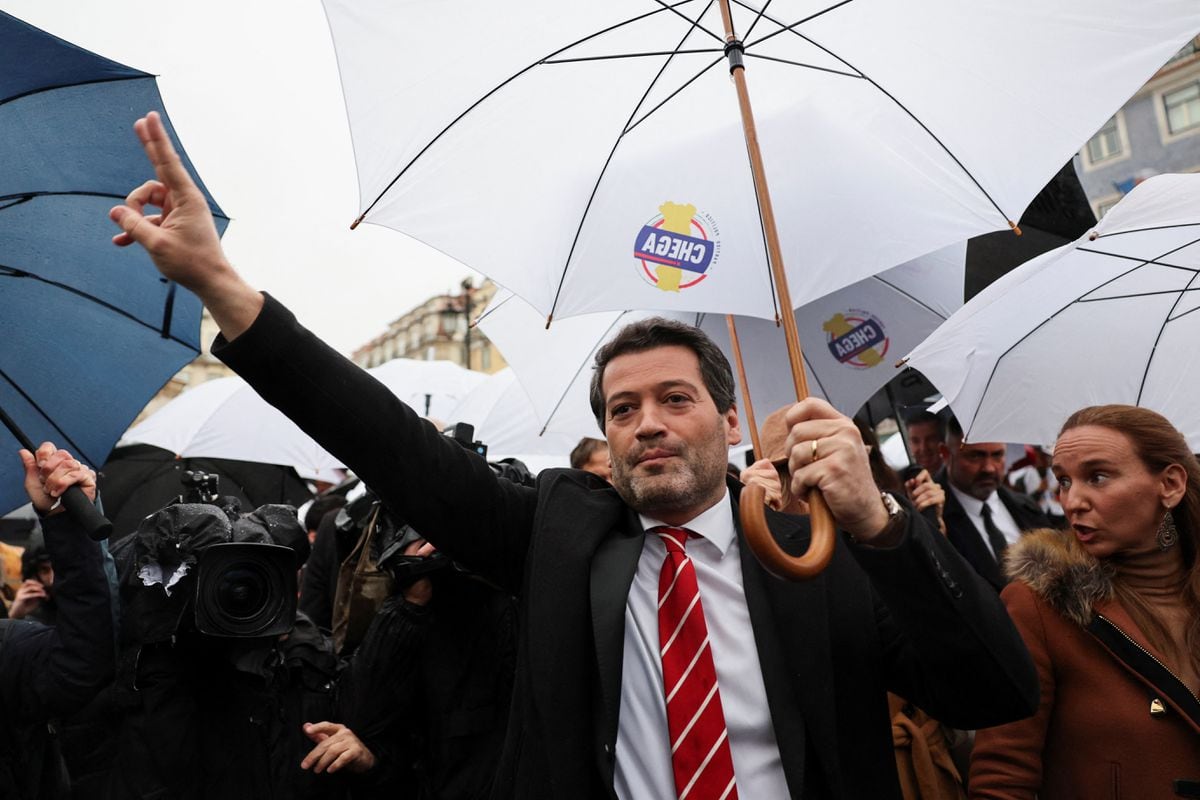Without a visitor, I would have landed in Madrid on February 12, I would have thought that Isabel Díaz Ayuso was in trouble.
It was the day of a large demonstration against the management of public health by the Madrid president and left an iconic image: the Plaza de Cibeles overflowing with people.
There were only three and a half months left for the elections in which Ayuso was going to play for re-election and he found himself with a massive expression of discontent: "You have to notice when you vote," said the banners and the chants.
It seemed that the president would face the final stretch of 28-M uphill.
However, Ayuso has entered May sliding towards a new resounding victory, according to the average of ten polling houses.
Since October, all have placed it above 45%, except for the CIS in December, which gave it a 40% vote,
The question of what is happening intrigues many on the left.
It is difficult for them to understand why the discontent has not been transferred to the polls.
The main opposition party in Madrid, Más Madrid, chose Ayuso or Sanidad as one of its slogans to present to voters what in their opinion is at stake in the regional elections.
Ayuso, however, has raised other terms: Sánchez or Spain, a formula that seems to work well.
The deputy of Más Madrid Javier Padilla acknowledges that they have the challenge of ensuring that the population mobilized in favor of public health does not demobilize on the day of the polls.
But he adds that perhaps not all those who have taken to the streets were guaranteed votes for the left.
"People of all kinds go to the demonstrations and most likely there were also Ayuso voters," says Padilla.
The pollster Narcisco Michavila, from Gad3, doubts this theory due to the strong polarization they notice in society.
"When party leaders go to a demonstration, the attendees already identify it as supporting them."
He says that simply put, Madrid is a highly populated and diverse region.
"It is that the opposition takes between 40% and 50% of the vote and that gives many attendees."
Michavila, whose polls place Ayuso on the verge of an absolute majority, doubts the impact of the health issue in Madrid.
"We have been having tides of these every four years in the spring and they have not meant a change of government."
The health demonstration on February 12 in the Plaza de Cibeles in Madrid. Andrea Comas
The February demonstration had been preceded by another on November 13 in Cibeles, whose success surprised locals and strangers.
Both were expressions of support for the strikes that the toilets had been holding since autumn.
The main one of these strikes, in the primary, culminated in March with an agreement between the calling union, Amyts, and the Ministry of Health.
Ayuso has used the end of that strike to attack the left.
In the WhatsApp to his group in which he said "today the left is finished... Kill them", one of the reasons for the supposed blow to the opposition was the agreement with the doctors.
"The health strike is over," he said.
That agreement meant a promise to improve working conditions that has been partially fulfilled so far.
The union calling the strike, Amyts, was “moderately satisfied” this Wednesday because the Governing Council approved the salary increase for 5,200 primary doctors.
But according to its general secretary, Ángela Hernández, the other leg of the commitment is still missing, the limitation of the number of patients seen by each physician, which they hope will be progressively implemented until September.
Strikes in four areas
The truth is that the conflict has continued in other areas of Madrid health, where those affected deny that Ayuso has solved the problems.
One of these fronts is that of interim doctors or who accumulate temporary contracts, who plan to start a strike with stoppages that begin this Thursday and will continue on May 9, 11, 16, 18, 23 and 25 (they will be Tuesday and Thursday). .
And that comes just when the president has assured this Wednesday in an interview in SER: “I have ended the temporality that was in most contracts.
In fact, 84% of the contracts will already be fixed forever”.
The reality is that the president omits that, like the rest of the administrations, she is obliged by a state law of 2021 to stabilize employment, making temporary employment fixed before December 2024. That law was a condition of the European Commission so that Spain received European funds.
Another strike is that of the SATSE, CCOO, CSIT and UGT unions that have called strikes in all sectors of Madrid's public health next Monday and Friday, May 26 in order to demand a return to the 35-hour day.
A third front is that of the extra-hospital emergency toilets, where the strike has continued since the end of 2022 from Monday to Wednesday due to the Ministry's plan that meant that 29 of the 78 continuous care points open without a doctor.
And a fourth conflict is that of the workers of the Summa112 switchboard, who have been on an indefinite strike since February to improve their conditions.
They are, in reality, silent strikes, because citizens often do not notice the strikes for a simple reason: as they are essential services, the conveners must respect a minimum number of personnel.
As for the health demonstrations, surprisingly there will not be an attempt to replicate the photo of Cibeles in May.
The conveners of the successful demonstrations in November and February, the Table in Defense of Public Health, have decided that this month is not the time.
This state-wide citizen platform, known as the White Tide, emerged in 2012 to protest against the privatization of public health and since then it has taken to the streets in Madrid almost every month, up to a total of 99 times.
A spokeswoman, Carmen Esbrí, explains that the 100th White Tide will have to wait until after the elections.
“We are not going to do it precisely because it coincides with election time,” she says.
“We have not gone out every month and our work to raise awareness is not limited to people taking to the streets in a folkloric way.
People have to demonstrate knowing what is the reason that has brought us here.
It is a work of ant, of awareness ”.
Support for these demonstrations fluctuates greatly from month to month.
In the last one, on April 15, only about 1,500 people circulated through central streets, stopping at the Congress of Deputies and ending at Puerta del Sol.
The lack of a new march in May has disappointed some sections of the left.
In return, this month the Table will organize events in a bookstore, Traficantes de Sueños (today) and the Teatro del Barrio (on Tuesday the 16th).
They do not rule out joining other citizen groups to organize a demonstration in Madrid in defense of public services on Saturday the 20th.
Subscribe here to our
newsletter
about Madrid


/cloudfront-eu-central-1.images.arcpublishing.com/prisa/UA7QFUHVWEFO4P5F7BKC6FJXOY.jpg)




/cloudfront-eu-central-1.images.arcpublishing.com/prisa/YFOE7FF5EFC7NP5O2DLUMEU6EI.jpg)

